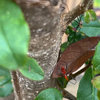Neem oil mixed with BT. Anyone tried this?
timshaw
16 years ago
Featured Answer
Comments (16)
Kimmsr
16 years agojulianna_il
16 years agoRelated Professionals
Forest Park Landscape Architects & Landscape Designers · Mountain Brook Landscape Architects & Landscape Designers · Owings Mills Landscape Architects & Landscape Designers · South Elgin Landscape Architects & Landscape Designers · Waterbury Landscape Contractors · Lemont Landscape Contractors · Palm Beach Gardens Landscape Contractors · Placerville Landscape Contractors · Pleasant Grove Landscape Contractors · Tavares Landscape Contractors · Whitehall Landscape Contractors · Irvington Landscape Contractors · Four Corners Landscape Contractors · Palmetto Outdoor Lighting & Audio Visual Systems · South Milwaukee Decks, Patios & Outdoor Enclosuresjustaguy2
16 years agoronalawn82
16 years agotimshaw
16 years agohomegrown_2007
16 years agoronalawn82
16 years agosharecropper
11 years agosharecropper
11 years agoKimmsr
11 years agoCarolynS.
9 years agoMichael
9 years agoKimmsr
9 years agoHU-22597058
last yearLaura G
last year
Related Stories

KITCHEN DESIGNThe Cure for Houzz Envy: Kitchen Touches Anyone Can Do
Take your kitchen up a notch even if it will never reach top-of-the-line, with these cheap and easy decorating ideas
Full Story
LAUNDRY ROOMSThe Cure for Houzz Envy: Laundry Room Touches Anyone Can Do
Make fluffing and folding more enjoyable by borrowing these ideas from beautifully designed laundry rooms
Full Story
KITCHEN DESIGNTry a Copper Sink for a Warm Glow in the Kitchen
Bring polish and patina to your kitchen with a sink done in endlessly interesting copper
Full Story
BATHROOM DESIGNHow to Mix Metal Finishes in the Bathroom
Make a clean break with one-dimensional bathroom finishes by pairing nickel, silver and bronze hardware and fixtures
Full Story
KITCHEN DESIGNNew This Week: 2 Kitchens That Show How to Mix Materials
See how these kitchens combine textures, colors and materials into a harmonious whole
Full Story
REMODELING GUIDESOld and New Make for a Jolly Good Mix in England
Give an 18th-century country cottage a contemporary addition, and what do you get? A surprisingly cohesive-looking home
Full Story
KITCHEN DESIGNNew and Old Mix It Up in a Historic Farmhouse Kitchen
A couple rethink the kitchen in their Pennsylvania farmhouse to restore authenticity while also creating a space for modern living
Full Story
HOUSEKEEPING12 Cleaning Projects That Go a Little Deeper — Naturally
Eucalyptus oil for germy door handles. Baking soda for oven grime. Here are nontoxic solutions for often-overlooked cleaning jobs
Full Story
HOUZZ TOURSHouzz Tour: A Revolutionary Renovation in Connecticut
A 200-year-old farmhouse retains elements of its past, like reclaimed wood, yet feels decidedly modern. Yoga, anyone?
Full Story
DECORATING GUIDESA Brief History of Headboards
They once nuzzled the heads of pharaohs, but today's headboards can make anyone feel pampered in the bedroom
Full StoryMore Discussions









Bridgette Dunn